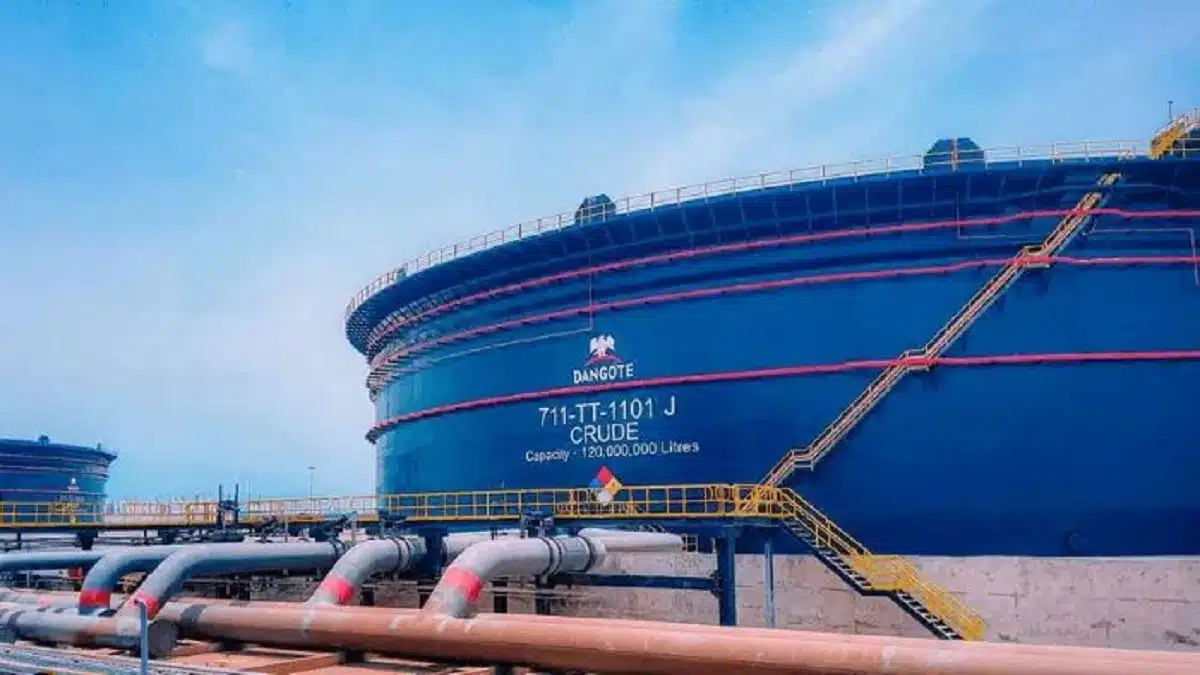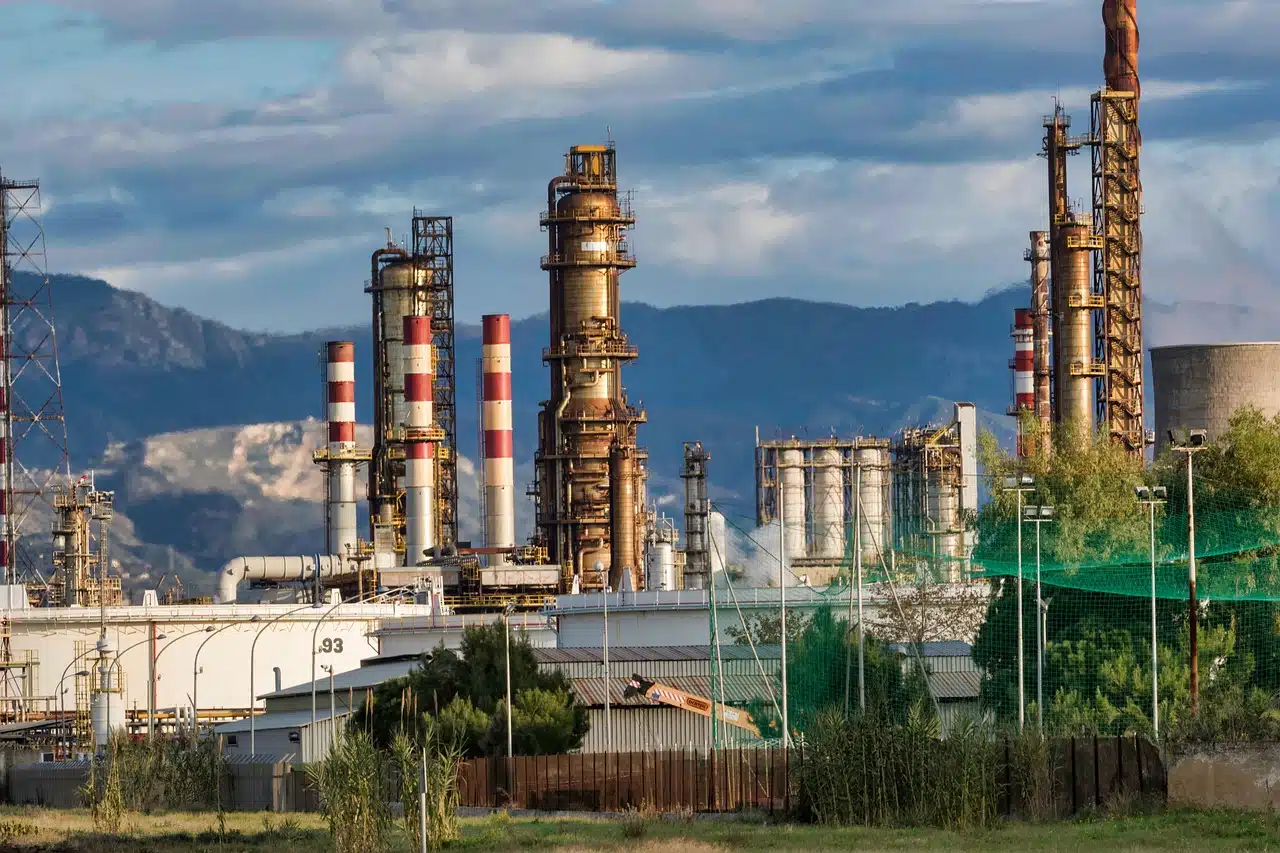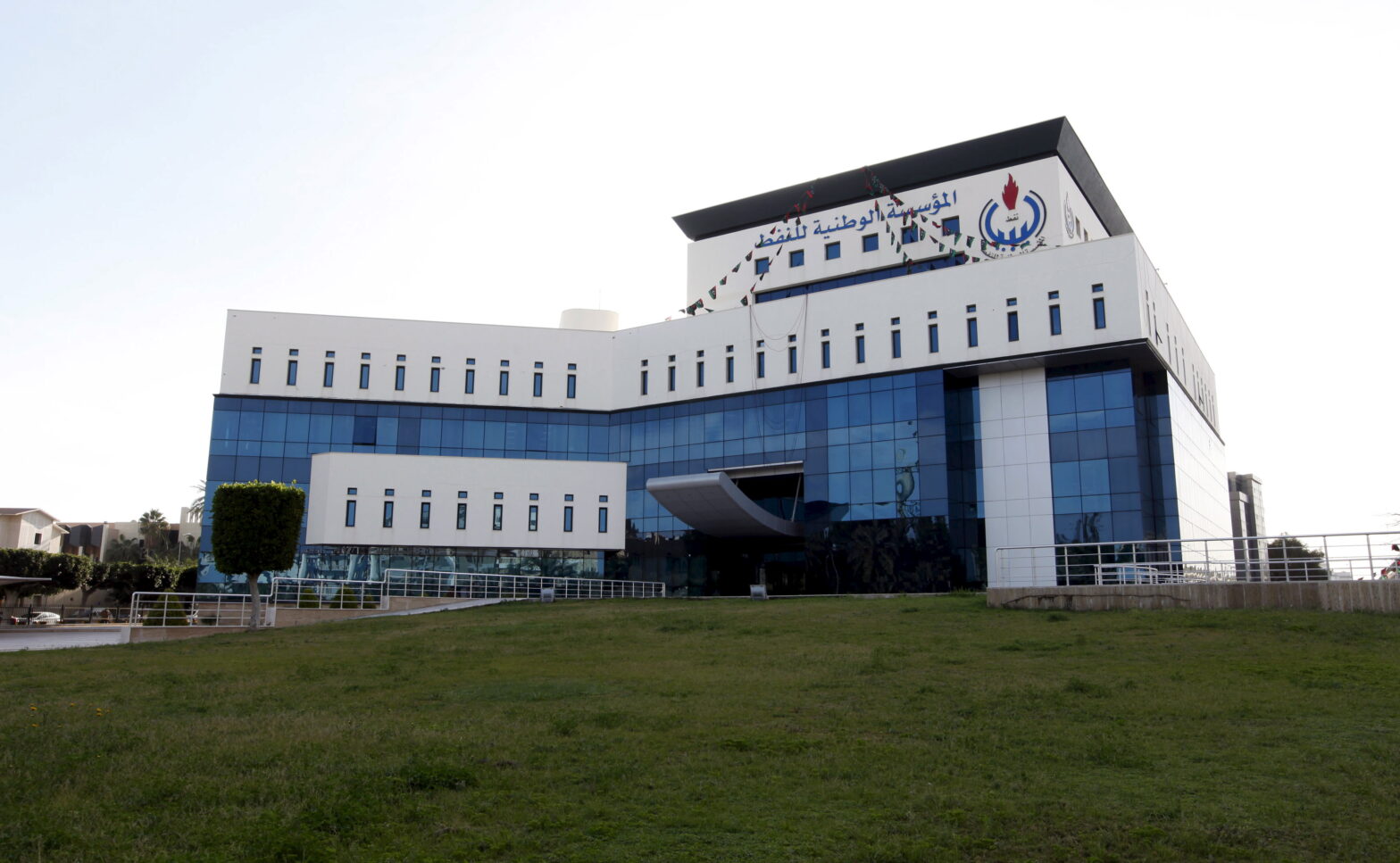The Dangote Refinery, Africa’s largest oil refining facility, is far more than just a petrol supplier — its wide range of refined petroleum products makes it a critical resource for multiple industries, not only in Nigeria but across the continent.
With a processing capacity of 650,000 barrels per day, the $20 billion large-scale integrated refinery produces petrol, diesel, aviation fuel, naphtha, polypropylene, and bitumen, among others.
Beyond its role in supplying petrol — the mainstream fuel for the land transport sector in Nigeria and neighboring African countries — the refinery provides essential raw materials and energy sources for various industries that often go unnoticed.
Let’s take a closer look at five key sectors that stand to benefit the most from the refinery’s diverse product output.
1. Aviation industry
The Dangote Refinery’s production of high-quality jet fuel is a game-changer for Africa’s aviation sector.
At full capacity, the refinery can produce up to 11 million liters of dual-purpose kerosene (DPK) daily, including 9 million liters of aviation fuel (Jet A1).
This is more than enough to meet the daily demand of Nigeria’s aviation industry — including military operations — with surplus available for export.
Previously reliant on imported aviation fuel, which often came at higher costs and faced supply chain disruptions, Nigerian airlines can now source fuel locally, reducing costs and ensuring more stable pricing.
This will lower operational expenses for both commercial and cargo services, making air travel more affordable.
In addition to being the sole provider of aviation fuel to Nigeria today, the refinery has begun exporting jet fuel to international destinations like London and Iceland, as well as to Saudi Aramco.
This development positions the Dangote Refinery as a global energy supplier.
2. Manufacturing sector
The refinery offers more than just diesel — it provides a consistent supply of polypropylene and naphtha, both essential to the petrochemical industry.
With annual production capacity of 900,000 metric tonnes of assorted grades of polypropylene, the Dangote Refinery and petrochemical plant serves as a reliable supplier for manufacturers.
Naphtha and polypropylene are critical raw materials for producing plastics, cosmetics, synthetic fibers, rubber, and industrial chemicals.
By sourcing these inputs locally, manufacturers can significantly reduce production costs and increase industrial output, strengthening Africa’s growing manufacturing sector.
3. Agricultural sector
The agricultural sector also stands to benefit from the Dangote Refinery’s output, particularly through access to diesel and other petroleum products.
These provide reliable energy sources for farming machinery and equipment, leading to increased food production and reduced costs.
Additionally, naphtha — a byproduct of the refining process — is vital for producing ammonia, a key ingredient in fertilizer manufacturing.
With a steady supply of naphtha from the refinery, Nigeria’s agricultural sector can expect more affordable and accessible fertilizers, contributing to improved crop yields and enhanced food security across the continent.
This aligns with Nigeria’s ongoing efforts to reduce reliance on imported fertilizers and boost local production.
In 2021, the Dangote Group completed a $2.5 billion twin fertilizer plant that produces 3 million metric tonnes of urea fertilizer yearly — the single largest in the world.
4. Power generation
The Dangote Refinery has the capacity to produce fuel oil and diesel, both of which provide reliable energy sources for independent power generation — particularly in regions where grid electricity is either unreliable or unavailable.
Nigeria’s hospitality sector alone is believed to consume 200 million liters of diesel annually.
With the refinery’s entry into the market, this entire volume can now be sourced locally, reducing import costs, easing reliance on the national grid, and improving electricity supply for seamless operations.
At full capacity, the refinery can produce 27 million liters of low-sulfur diesel daily, ensuring a steady supply of cleaner-burning fuel for generators, independent power producers, and industrial facilities reliant on backup power.
This helps stabilize energy availability for businesses and households alike.
5. Construction industry
One of the most valuable byproducts of the Dangote Refinery is bitumen, which is crucial for the construction industry.
Derived from the bottom of the refining process, bitumen serves primarily as a binder for asphalt used in road construction, and it’s also used for roofing and waterproofing.
Despite Nigeria’s estimated 42 billion barrels of bitumen reserves — one of the largest globally — the country has long relied on imported bitumen, with an annual demand of about 500,000 tonnes.
The Dangote Refinery’s production of bitumen marks a critical turning point for the local construction industry, offering steady access to domestically sourced, high-quality supplies.
This reduces inflated project costs and enhances project timelines.
The Nigerian Ministry of Works and Housing, responsible for most of the country’s road construction projects, stands to be a primary beneficiary of local bitumen supply, given that only about one-third (~60,000 km) of Nigeria’s estimated 200,000 km road network is currently paved.
The Dangote Refinery’s impact goes far beyond petrol production — it serves as a reliable source of vital byproducts that catalyze industrialization, economic growth, and self-reliance across multiple sectors.
By supplying critical raw materials and energy products, the refinery has the potential to reshape Africa’s industrial landscape, making key industries more competitive and reducing dependence on imports.
As the refinery ramps up production to full capacity in March 2025 and expands its market reach, its role as a regional powerhouse in energy and industrial development becomes even clearer.











